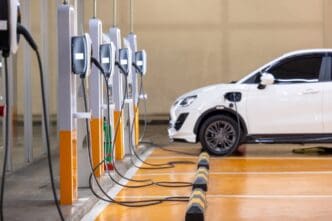Executive Summary
The Story So Far
Why This Matters
Who Thinks What?
President Donald Trump’s administration has reversed course on electric vehicle (EV) development in the United States, ending a crucial $7,500 consumer tax credit and halting funding for charging infrastructure. This policy shift is poised to significantly slow US EV sales, creating an opening for China, America’s primary trade rival, to further solidify its dominance in the global EV market and its associated supply chains.
Policy Reversal and Its Rationale
Since returning to office, Trump and congressional Republicans have dismantled key incentives that supported the American EV sector. Beyond the tax credit, the administration has frozen funding for charging station development and eliminated fuel-efficiency targets for automakers. Trump previously characterized former President Joe Biden’s EV initiatives as a “hoax,” asserting that such policies would lead to all cars being made in China within three years.
This stance is largely understood within a political context, with Republicans often opposing Democratic-led incentives due to perceived threats to the traditional oil and gas industry. However, critics point to an apparent contradiction with Trump’s broader “America First” trade agenda, which typically advocates for domestic production across strategic industries.
A White House spokesperson defended the administration’s actions, stating that Trump is “restoring America’s energy and manufacturing dominance by rolling back burdensome regulations that stifled the energy industry and reshoring jobs.” The spokesperson emphasized a commitment to ensuring American automakers play a key role in the nation’s “next Golden Age.”
National Security and Economic Implications
Experts are raising concerns about the long-term strategic consequences of this policy shift. Huibert Mees, a retired automotive engineer who has worked with companies like Tesla and Apple, warned that “the writing is on the wall for gasoline, and to cede EV technology to China is a massive mistake.” Mees further elaborated, calling it a “massive national security risk” as it pertains to the future of transportation.
The Biden-era incentives, which Trump’s administration has rolled back, contained provisions specifically designed to bolster American battery factories and penalize companies that did not increase domestic production. This was, in part, a strategic response to counter China’s growing influence in the EV supply chain, including rare-earth minerals.
Impact on US Automakers
The expiration of the $7,500 tax credit on September 30 has already triggered a pullback from major US automakers. General Motors recently announced a $1.6 billion loss related to its reduced EV production, citing a “strategic realignment” in response to government policy changes. Ford has similarly scrapped or delayed several electric models, with its EV division reportedly losing over $2 billion in the first half of the year.
Other major players, including Stellantis (owner of Jeep, Ram, Chrysler, and Dodge) and Honda, have also scaled back their EV ambitions or ended production of specific electric models in the US market. Even Tesla, an American EV pioneer, is reportedly shifting its focus more towards artificial intelligence and robotics rather than solely on cars, according to its CEO.
Beyond EV-specific policy changes, Trump’s tariffs, which impose a 25% tax on most imported cars and parts, have also created instability. Automakers have largely absorbed these costs to avoid raising consumer prices. Erin Keating, an executive analyst at Cox Automotive, noted that “so much uncertainty” in the broader industry makes the relatively unprofitable EV sector an “obvious place for automakers to dial back production and try to save some costs.”
China’s Ascendant EV Market
While the US market faces challenges, Chinese EV manufacturers are aggressively expanding their global footprint. Brands like BYD and Geely are making significant inroads into overseas markets across East Asia, Europe, and South America, offering popular and notably affordable options. These companies have rapidly advanced in technology and safety, moving past earlier perceptions of quality issues.
Mees highlighted China’s rapid progress, stating, “Now they’re leading, and it hasn’t taken that long — they’re going at breakneck speed, and they’re not slowing down.” This rapid advancement positions China to dominate future transportation technologies, a role many experts believe the US should be leading.
Outlook
The Trump administration’s retreat from electric vehicle incentives marks a significant turning point for the US auto industry and its competitive standing against China. While the administration cites efforts to restore American manufacturing dominance, the immediate effect appears to be a deceleration of domestic EV adoption and production, potentially ceding critical technological and economic ground to its primary trade rival.








